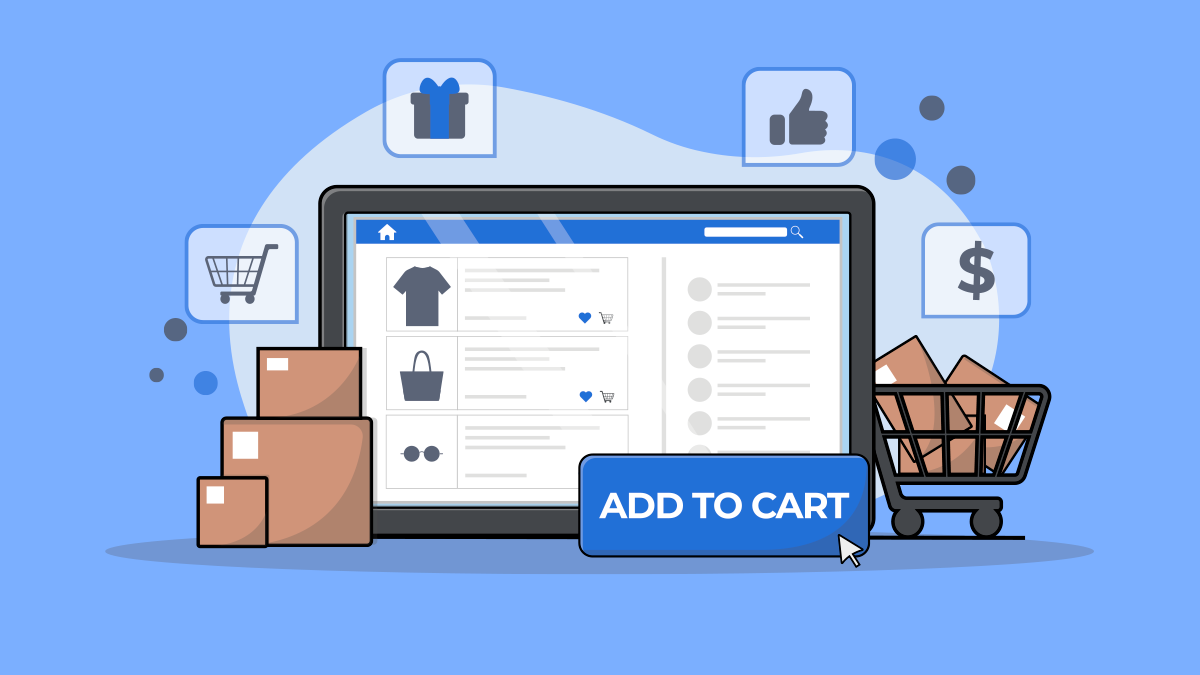Step-By-Step Guide to a Successful Affiliate Program Launch

Launching an affiliate program can be a game-changer for any business that wishes to boost its sales and brand awareness. Yet, in order to create a good and — most importantly — successful affiliate program you need meticulous planning, strategic execution, and a deep understanding of affiliate marketing.
There are plenty more things to know and keep in mind before you start your affiliate program, and we will help you learn the most important elements!
1. Evaluate Your Website for Leaks
First things first, it is crucial to make sure that there are no leaks on your site since having them can result in plenty of issues like:
- Negative Perception. If your website leaks, it will absolutely affect your brand image. It gives a bad impression to others and drives off potential customers, as people will be reluctant to use such a platform.
- Loss of Revenue. Leakage will also lead to loss of revenue: not only because people will be reluctant to do business with unsafe companies, but because leakage can cause some issues in the stability of the site.
- Legal Issues. Violations of privacy laws, such as CCPA or GDPR, will land your business in hot waters, leading to legal disputes.
And these are not even the only issues site leakage can cause!
So how can you evaluate your site and examine it for leaks?
- Improve Security Measures
Implement SSL encryption and conduct a security audit of your website to identify any vulnerabilities and potential threats. You can also install security plugins or software that will help to monitor and prevent attacks. Also, don’t forget to update your security regularly.
- Conduct regular monitoring and maintenance
Make sure to perform regular security scans and update your security system’s measures every time you detect a threat.
- Verify Tracking
Review analytics data to ensure consistency and accuracy in tracking, as well as test the site’s tracking mechanisms, such as cookies and pixels.
- Check out the UX
It would be useful to check your website for broken links and asses the load times of your pages.
- Take care of your customers
Provide your buyers, and just all visitors, with transparent information about data privacy and security practices on your platform. Also, make sure to offer people secure payment options.
2. Study Your Competition
In addition to analyzing your website, it would also be very useful to study your competition — it will both provide some valuable knowledge and can give you some inspiration for your own affiliate program.
Analyzing competitors within your industry helps you understand trends, best practices, and potential gaps in the market that you can then leverage to make your affiliate program stand out and be more attractive to others. Furthermore, by examining rival affiliate programs, you can understand promotional strategies, commission structures and so on.
Aspects to Consider for Your Own Affiliate Program Launch
Alright, so if you decide to see what your competitors are doing, what exactly do you need to pay attention to? Here are some of the key aspects to take into account:
- What promotional materials they are using;
- What are competitors’ commissions and their structure;
- What sort of support do they offer affiliates;
- What software your competitors are using to track data;
- What strategy they are using to recruit new affiliates and so on.
3. Create a Dedicated Email Address
This could be very useful, since establishing a separate email address that is made specifically for affiliate communications will help maintain order.
This email will be a place where affiliated will send their partnership proposals and communication regarding promotional materials or campaign updates.
Moreover, separating affiliate-related emails from those used for your primary business will ensure that you won’t miss out on all the important messages.
4. Choose the Platform for Your Affiliate Program Launch
Selecting the right platform for your affiliate program launch is another critical decision which can that can significantly impact the success of your program. The most common options you have are either joining an affiliate marketing network or having your own in-house affiliate program.
Both of them have their own pros and cons so consider which one would better suit you:
5. Decide on Program Details
Before you launch your affiliate program, you need to decide on the details of this program, so that your affiliates can understand what to expect.
Among the most important details to decide on are:
Standard Commission
First, determine what the standard commission rates will be — these serve as the primary incentive for affiliates to promote your products or services.
Here, you need to take into account factors such as product margins, average order value, as well as industry standards
Don’t forget that it's important to strike a balance between offering competitive commissions that attract affiliates while still keeping them affordable to your business.
Performance-Based Tiers
Implementing performance-based tiers is also very useful, as they encourage affiliates to work better and remain motivated. By setting pre-defined sales targets or performance milestones, affiliates can receive higher commission rates or bonuses as they achieve these goals.
This First Sale(s) Bonus
Consider the first sale(s) bonus which can take the form of a one-time payment or an additional commission percentage on the affiliate’s first sale. Not only does this incentivize new affiliates to join you, but it also helps increase their motivation.
Commission Structure for Select Affiliates
Your program can also include a commission structure for affiliates, based on their performance. That means that high-performing affiliates or those with significant reach and influence may receive special commission rates or exclusive bonuses; That way, you show them that you appreciate their contribution and wish to keep working with them.
Other Incentives
In addition to monetary rewards, you can incorporate other incentives to further motivate affiliates: exclusive promotional opportunities, access to new products or services, or participation in affiliate contests or challenges.
Tracking Gap or Cookie Life
Keeping track of cookie life is essential to give affiliates an appropriate timeframe to receive credit for conversions after a visitor clicks on their referral link. In doing so, you make sure that your affiliates are fairly compensated for their efforts, even if the conversion occurs after the initial click.
Keep in mind that the tracking gap should be long enough to account for potential delays in the conversion process, such as extended decision-making periods or return policies.
6. Put Together Your Program Agreement
Naturally, before you launch your affiliate program, you need to form a program agreement. This is a legal contract between you and your affiliates, which outlines the terms and conditions of the affiliate’s participation in the program.
How to create it is an entirely different matter with many things to consider, but overall, the affiliate program agreement should clearly define such aspects such as:
- Commission rates;
- Terms of payment;
- Promotional guidelines
- Legal considerations, such as compliance with applicable laws and regulations, intellectual property rights, liability limitations, and so on.
By making a detailed, clear agreement, you set clear expectations for both parties and minimize the risk of future disputes.
7. Create Your Merchant Account, Set Up Your Program, and Implement Tracking
It’s also important to create your own merchant account before you launch your program.
To begin, you’ll need to decide on the affiliate marketing platform or software — it will serve as the backbone of your affiliate program, where you can find affiliates, track conversions, manage payouts, and so on.
Afterward, set up your program by making a program agreement and finally implement robust tracking mechanisms, such as affiliate tracking pixels or cookies.
8. Prepare and Upload Your Creatives and Affiliate Communications
Of course, you can’t forget about some essentials for your affiliate marketing campaign: foremost, you need creatives for your affiliates, and on top of that it's essential to have clear and effective affiliate communications.
Creatives Required for Your Affiliate Program Launch
The creatives every affiliate program needs include things like banners, text links, and promotional materials — essentially are vital tools that affiliates can and will use to promote your products or services.
Each creative should be designed to capture the attention of the target audience and drive them to take action, whether it's making a purchase or signing up for a newsletter.
Affiliate Communications to Have Ready
Effective communication is key to building strong relationships with your affiliates and keeping them engaged with your program, so be sure to prepare channels for affiliate communications.
These can include:
- Emails with important program details and resources;
- Regular newsletters;
- Dedicated dashboards where affiliates can access program information, track performance metrics, etc.
- Or just direct communication via social media or Messenger apps.
9. Leverage Network Tools and Resources to Get Your Program off the Ground
If you are working with an affiliate marketing network, they offer plenty of tools and resources that can help your program: affiliate recruitment tools, tools for tracking and gathering data, and so on. You can use these to expedite the launch process, build a strong foundation for your affiliate program, and manage it in the long run.
10. Do Not Put Your Program on Autopilot, Manage It!
And speaking of managing, yes, you do need to keep a close eye on your affiliate program, and not just put things on autopilot expecting everything to “work out”.
Effective program management is crucial for maintaining momentum, optimizing performance, and fostering positive relationships with your affiliates. Thus, make sure that you remain engaged with your program: monitor affiliate activity regularly, track key performance metrics, and analyze campaign results. Of course, it’s important to keep communication channels open and provide your affiliates with support, feedback, and updates to ensure they feel valued and motivated.
By actively managing your affiliate program, you slowly but steadily help it grow and deliver results, while also ensuring that you remain in control of it.








Your email address will not be published. Fields marked with * are required.
Comments are moderated. They will be published only if they add to the discussion in a constructive way. If you disagree, please be polite.